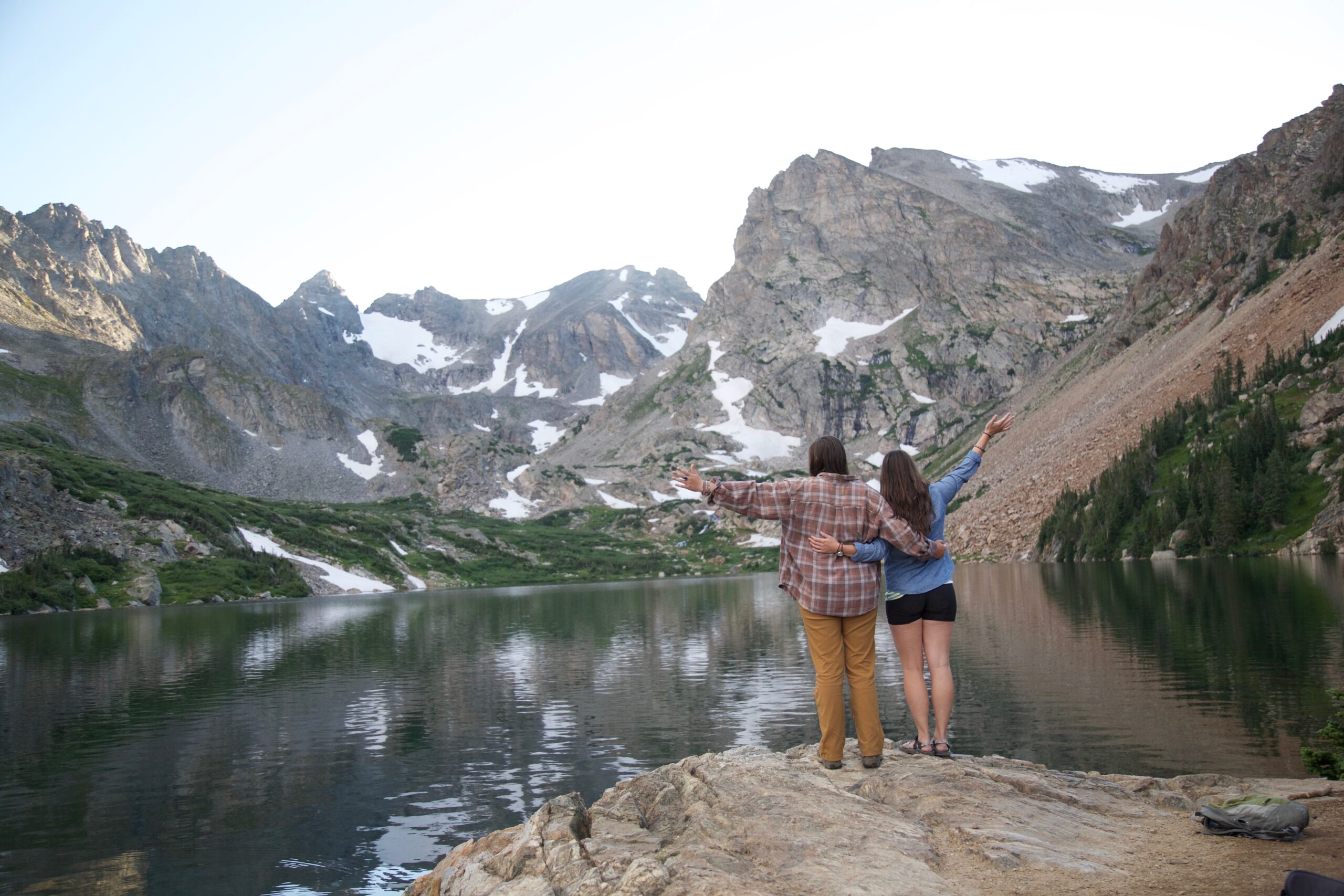News & Updates
Visiting Research Scholar Dr. Derrick Taff Partners with Leave No Trace and Rocky Mountain National Conservancy On New Research Studies


Dr. Derrick Taff, a long-time research collaborator with Leave No Trace, has joined the organization during his sabbatical from Pennsylvania State University as a visiting scientist this year. Dr. Taff has been leading work to establish a long-term research strategy with the aid of academic colleagues and federal land agency partners to advance the extensive foundational research that the Leave No Trace program has been built upon.
In addition to working in the Leave No Trace office this year, Dr. Taff was recently selected as the first Scholar in Residence at Rocky Mountain National Park through the Rocky Mountain Conservancy. In this role, Dr. Taff is conducting two Leave No Trace-related research projects in the park.
The first study focuses on understanding visitors’ attitudes toward human waste management in the Longs Peak trail corridor. The study is being conducted to identify and remove barriers to proper human waste disposal in this high-use area. Previously, Rocky Mountain National Park collaborated with the University of Colorado to design and construct bathrooms that were attractive and functional to visitors to encourage use. Custodial crews and llamas pack out the bathroom waste to get the waste out of the backcountry. This practice is labor-intensive and not always feasible, though, given the increased visitation (and waste) beyond the traditionally busy summer season.
Taff’s research will further explore individuals’ attitudes toward waste disposal, such as carrying out all waste or digging catholes. While it may not be the most glamorous topic, it’s important as human waste issues are increasing with more visitation, and our waste can impact wildlife, water quality, and the way people experience the park.
“We know how impactful human waste can be to our fragile park ecosystems from years of extensive recreation ecology research with Leave No Trace. This study advances the social science side of this issue by examining peoples’ willingness to use Leave No Trace strategies, such as carrying out their waste, and ways to educate and message to the public regarding this sensitive subject,” according to Taff.
Leave No Trace recommends the following practices to deal with personal human waste in parks and protected areas.
Taff’s second study in Rocky Mountain National Park focuses on understanding sustainable bouldering practices in the park. Bouldering is unroped rock climbing that consists of people staying low to the ground, usually with a mat known as a “crash pad” beneath them.
Taff and Leave No Trace colleagues first examined this topic in 2015, as bouldering emerged as a popular sport in the park. Results from the initial study indicated that boulderers’ attitudes and behaviors generally align with Leave No Trace practices, and boulders who initially learned how to climb in an outdoor setting were more aligned with Leave No Trace than those learned in a climbing gym.
Leave No Trace used the results to develop bouldering-specific education, and the Rocky Mountain National Park implemented these educational strategies through an onsite Bouldering Stewards program while spreading these educational materials in local climbing gyms. The current study works to understand how the attitudes and behaviors of boulderers might have shifted following the implementation of Leave No Trace education and park management strategies.
Both of these research topics address issues that numerous parks and protected areas are dealing with in the U.S. and internationally. Outdoor recreation continues to increase, and outdoor sports, such as bouldering, create new management challenges. However, social science like this can help the Leave No Trace organization understand visitor attitudes and behaviors in an effort to design effective educational strategies that help shift behaviors to align with park management objectives. Thus, these studies will help Leave No Trace to evolve and adapt educational strategies to improve conditions in Rocky and other parks and protected areas facing these issues.
You can find Dr. Taff conducting research in Rocky Mountain National Park from now until the end of September.
Let’s protect and enjoy our natural world together
Get the latest in Leave No Trace eNews in your inbox so you can stay informed and involved.
